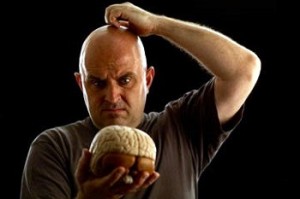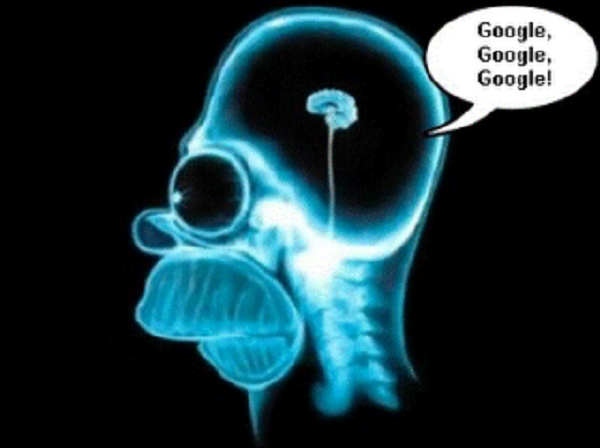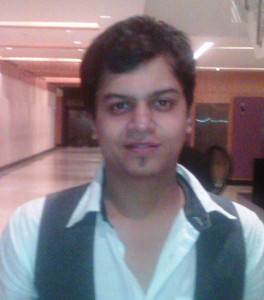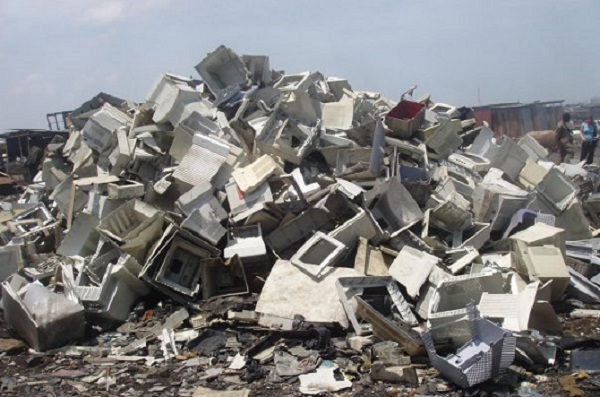Most of us need to scan the contents of our brains. How about we use Google to help us out?
 by Jatin Sharma | @jatiin_sharma on Twitter
by Jatin Sharma | @jatiin_sharma on Twitter
Looking for an ideal spot for a mini-vacation? Let’s go to Google.
Looking for some info on a celebrity? Let’s go to Google.
Looking for some dope on history? Oh yes, let’s go to Google.
Our obsession with this search engine is a strong one. No matter what, we are always ready to appeal to it for help with just a click of our mouse. Of course, there is no harm in easing your pain and looking for information that comes by so easily, and on a million topics (and counting). But have we considered that with all our click-happy search behaviour, we have actually switched off our brains?
Think about it. In the pre-Google days, we had to find our information from each other, from books and from information sources like dictionaries and encyclopaedias. When we were young, if we were set out-of-syllabus class projects, we normally turned to our school and college libraries, or to parents and teachers for help. There was simply no option, especially in fields like journalism and research, to track information to its source – and these sources were persons and libraries, most of the time.
And now, with Google, all of us know everything at once. Or, so we think.
It scares me to think that we actually believe that whatever we need is on the Internet, and so it shocks us on the rare occasions when whatever we’re looking for throws up no  searches on Google. What’s more, we think that all the information on the Internet is reliable and can be used without cross-checks. Even worse, we are passing on these habits to our children, whose primary source of information on most things are TV and the Internet.
searches on Google. What’s more, we think that all the information on the Internet is reliable and can be used without cross-checks. Even worse, we are passing on these habits to our children, whose primary source of information on most things are TV and the Internet.
I can already see that our excessive reliance on gadgets and the Great Big Internet World is slowly killing our ability to think, process and analyse information. Research proves that human evolution is a result of our adaptability, and all the things that the human body stops using stops developing further. This means that we may be actively contributing to the shrinking of our own brains.
We’ve become so lazy with our brains, we don’t entrust it with remembering anything. We have online calenders to remind us of people’s birthdays or our own milestones. If we want to learn how to make a presentation, we don’t learn about it from an expert, we just copy a likely-looking project from the Internet and put in our own words and images (which are also sourced from the Internet). School children these days are not burning the midnight oil to complete their projects – they are heading to Google to copy and paste somebody else’s efforts.
And we don’t feel any remorse, either over our brainless behaviour or our blatant copying of information, and using it elsewhere.
Even as I write this, all the knowledge we need is being turned in to sevearl MBs and GBs on crores of servers in the world. None of it is inside your head, but inside your computer or smartphone. And while on the subject of phones, the next time you lose your phone, do try looking for it on Google. If you find it, you can put the information on the Internet for others to use. If you don’t, you can come and tell me all about it.
Jatin Sharma is a media professional who doesn’t want to grow up, because if he grows up, he will be like everybody else. ‘Overdose’ is his weekly take on Mumbai’s quirks and quibbles.
(Pictures courtesy science.howstuffworks.com, www.comediva.com)





